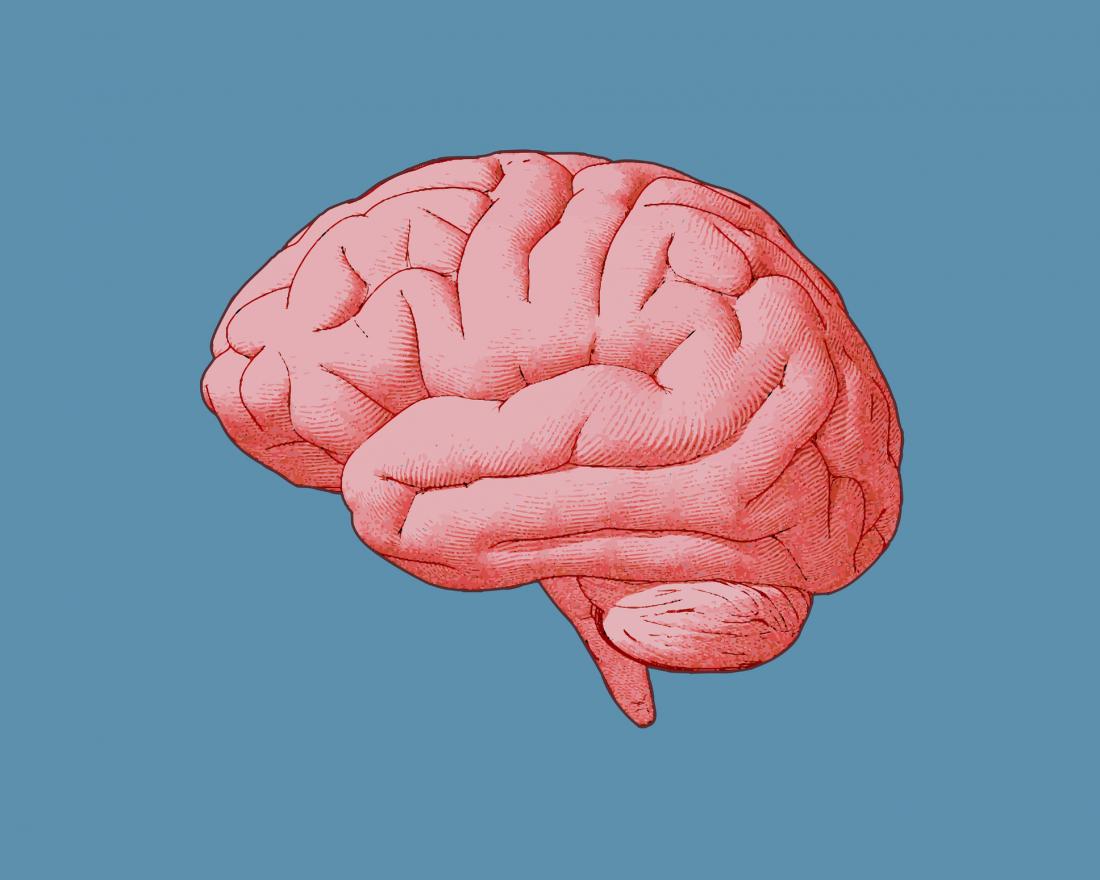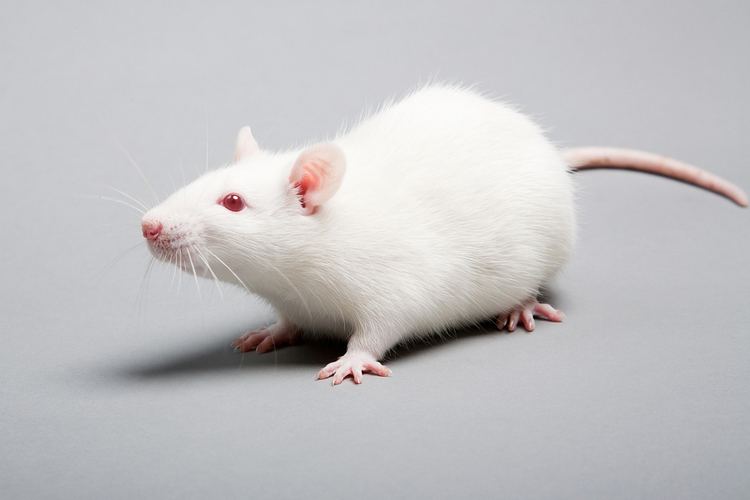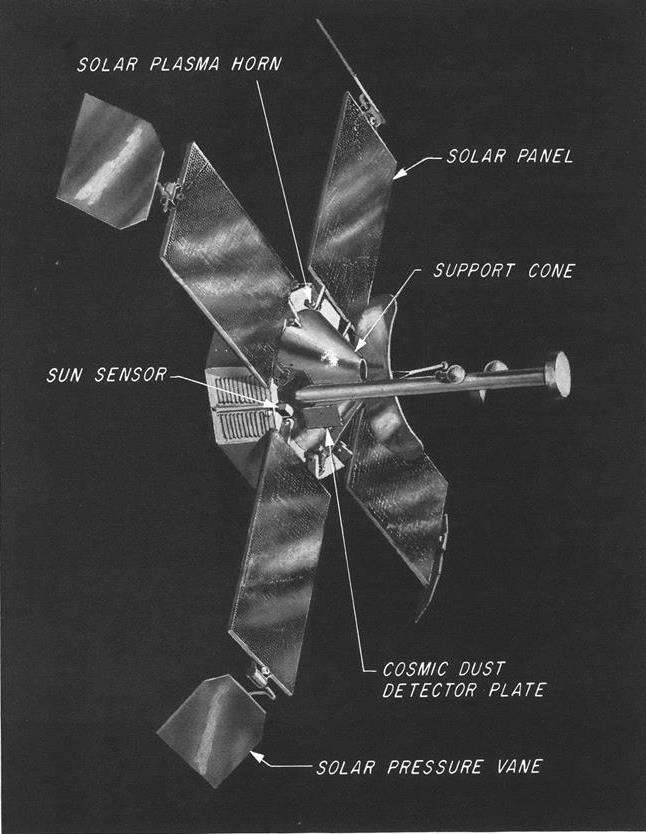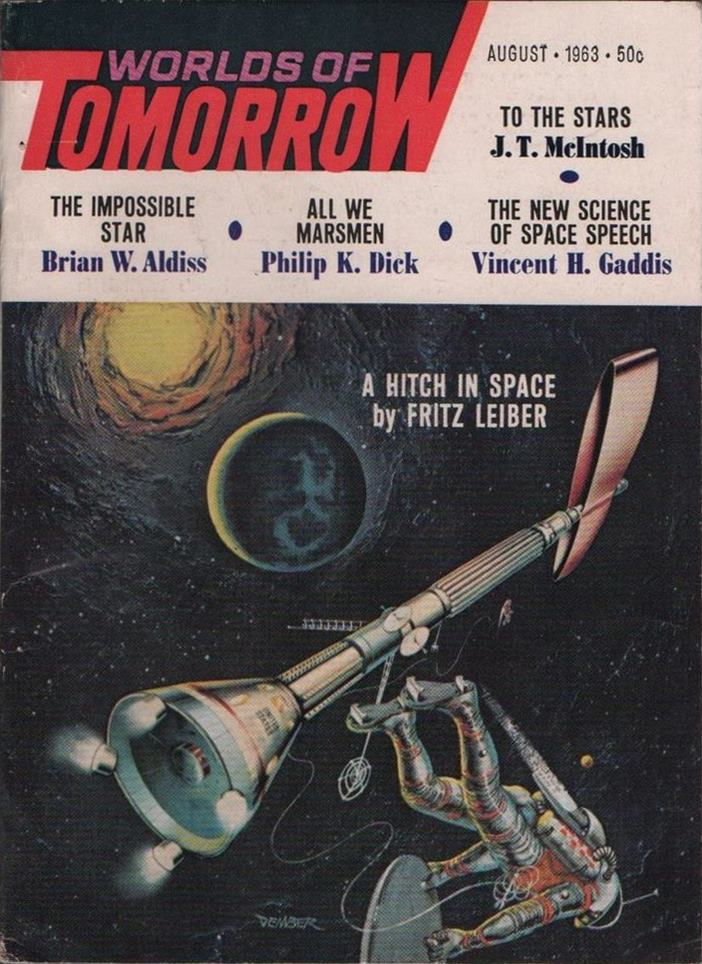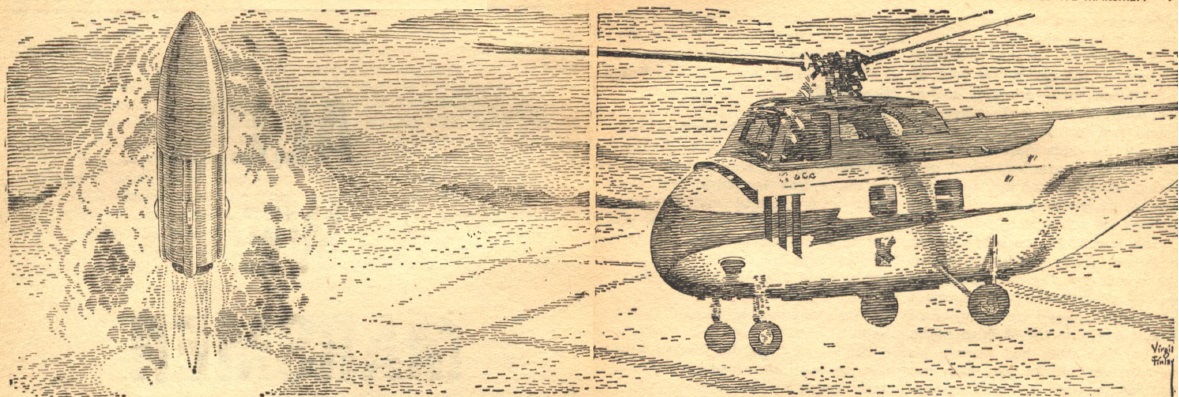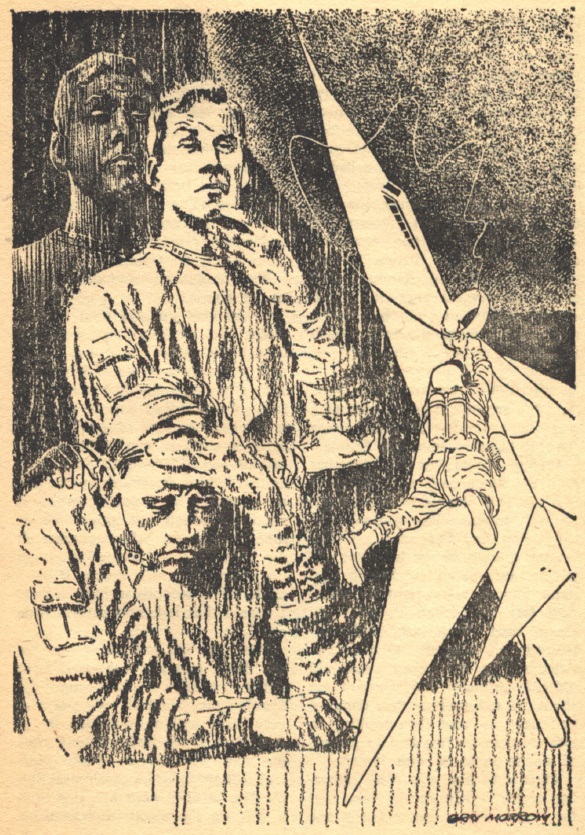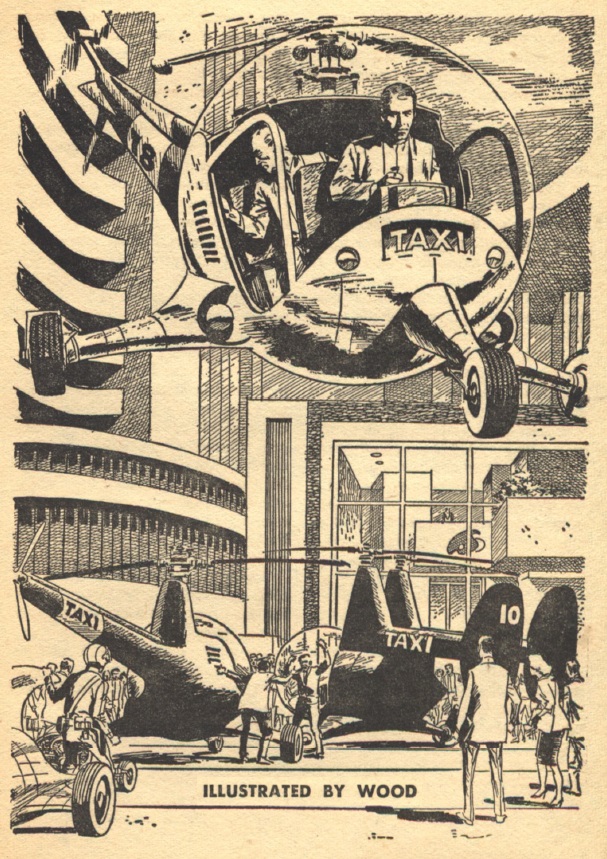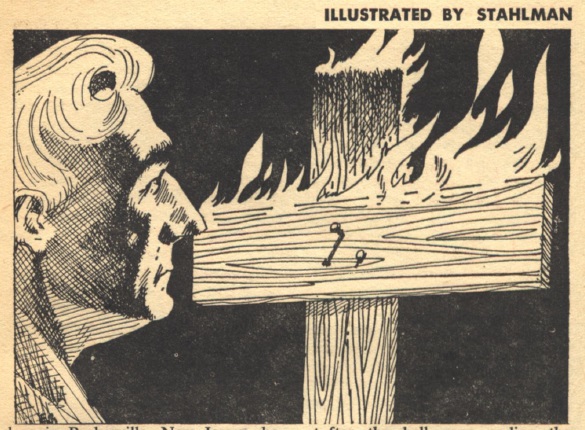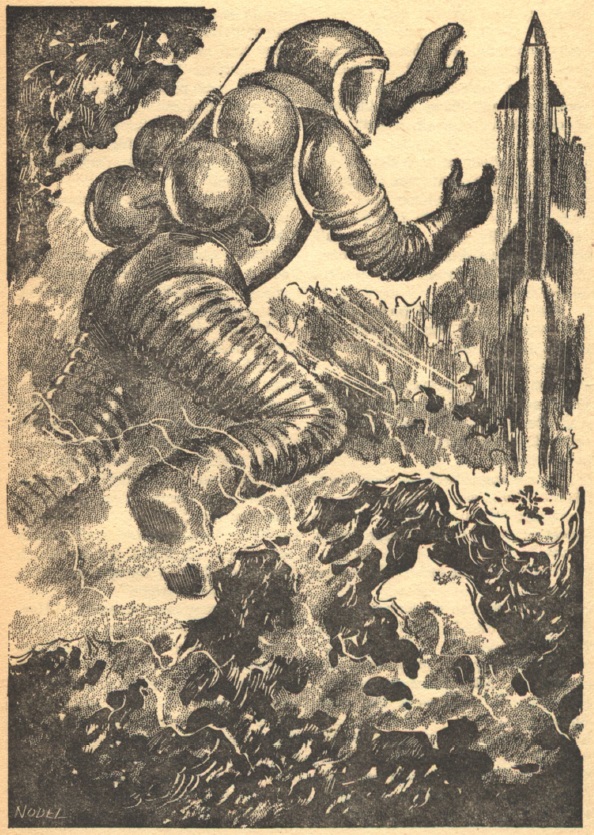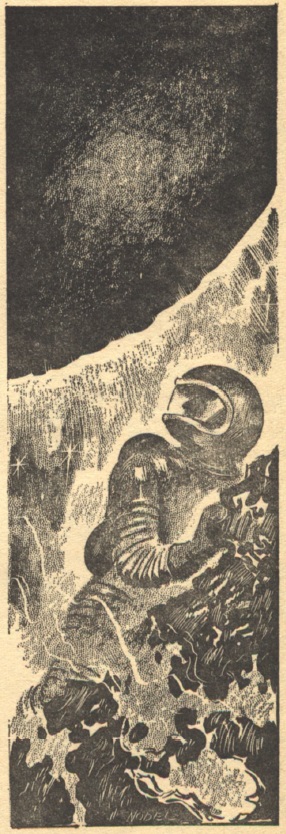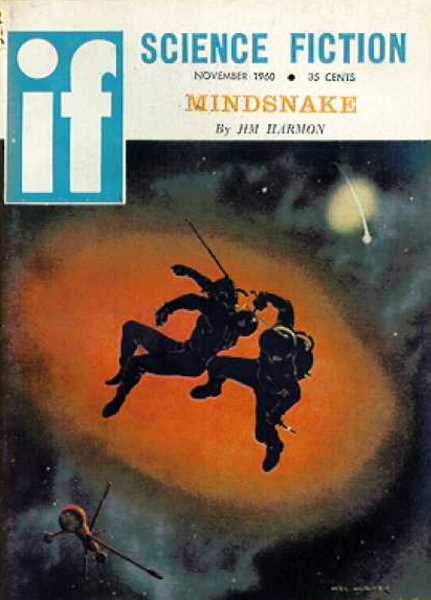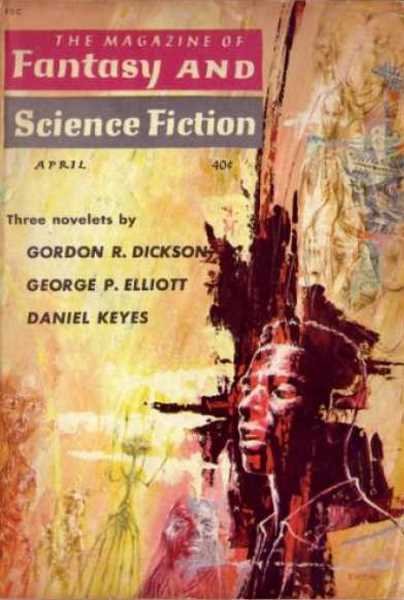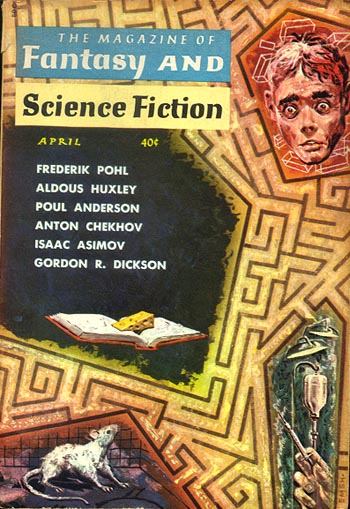
by Jason Sacks
So far, 1968 has been an exemplary year for science fiction films. Filmgoers have had a chance to watch psychedelic, universe-spanning science fiction with 2001: A Space Odyssey and adventure science fiction with Planet of the Apes and buxom science fiction with Barbarella. And now we have down-to-earth, humanistic – and surreal – science fiction with the new film Charly.
Cliff Robertson stars in the new film version of the already-classic Daniel Keyes novel, which Victoria Lucas gave five stars to back in ’66. And while this film isn’t nearly as good as the novel, Charly still is a clever movie, somehow both a real change-of-pace and a film very much of its moment.
(If you’re confused by that contradiction, dear reader, stick around and I’ll explain myself to you.)

As we come to know him, Charlie Gordon (as the book names him; the movie calls our lead character Charly) is a man with the mind of a small child. He’s mentally impaired, with a low IQ, a childlike take on the world, and a temper to match his frustrations. When Charly is offered the opportunity to become the subject of an experiment to give him super-intelligence, he jumps at the chance. But Charly soon discovers how brilliance and happiness don’t always go hand in hand, and his new intelligence just makes him feel deep angst.
Victoria loved the book for its unique epistemological structure and the way writer Keyes gives the reader deeper insights into Charly’s perceptions of the events which happen to him. That subjective nature gave the book a certain amount of pathos which makes the novel embed itself into readers' minds.
Of course, no film can simulate the effect of a series of journal entries, so we are forced to get by with the events which play out on the screen.
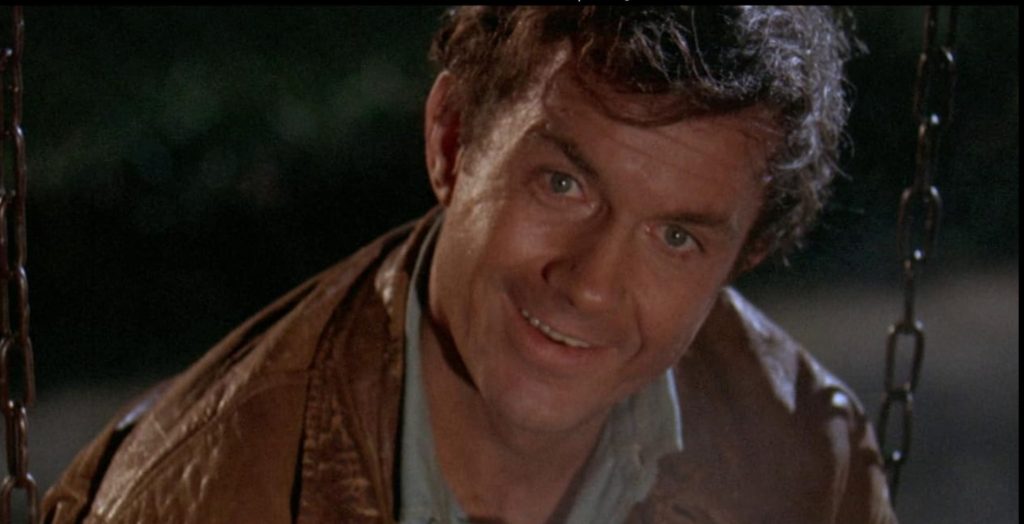
Robertson in this film feels like Fredric March starring in a kind of odd version of Dr. Jekyll and Mr. Hyde. In this case dumb Charly is a kind of monstrous identity. Not because of his low IQ, but more because dumb Charly acts weirdly. He feels like someone we don’t quite comprehend because he’s so different from most of us.
Robertson method-acts and method-acts all throughout this film, seeming to inhabit Charly’s body and mind. When he has a low IQ, he seems twitchy and odd, a man distorted and damaged by his impairment. It’s a grand, actorly performance, a transformation on the screen, but somehow I just never connected to Charly's humanity. It feels a bit much. For instance, Charly acts kind of jolly when his coworkers at a bakery play a nasty prank on him, and Charly's penmanship feels a bit like gilding the rose on his disabilities.
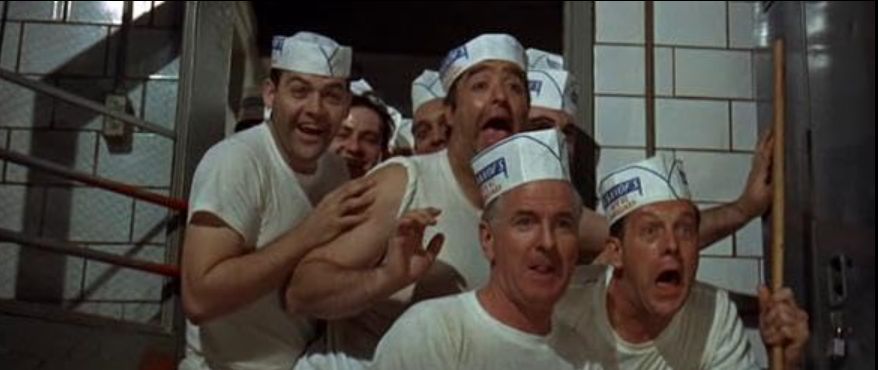
There are some quite moving scenes, though. One which really stands out happens when Charly attends a class with other severely disabled people. He's the only adult in a room full of children with Down's Syndrome and other disorders. The kids are filmed realistically and respectfully while Charly comes across as a real freak. This wonderful sequence gives the character some real pathos, an undercurrent of sadness which helps to explain his transformation.

Robertson delivers the kind of performance which feels like it’s specifically planned to garner its actor an Oscar nomination. There’s nothing really wrong with aiming for a precious golden statuette, but his performance does seem a bit calculated somehow. I felt like Robertson seemed too smart for the dumb Charly, planned out rather than spontaneous, considered rather than active in his scenes.
The best parts of this film are when Charly is transitioning to becoming smart. He hides out from people, seems to be really beginning to think through his experience, and we can actually see signs of emerging intelligence in these scenes.
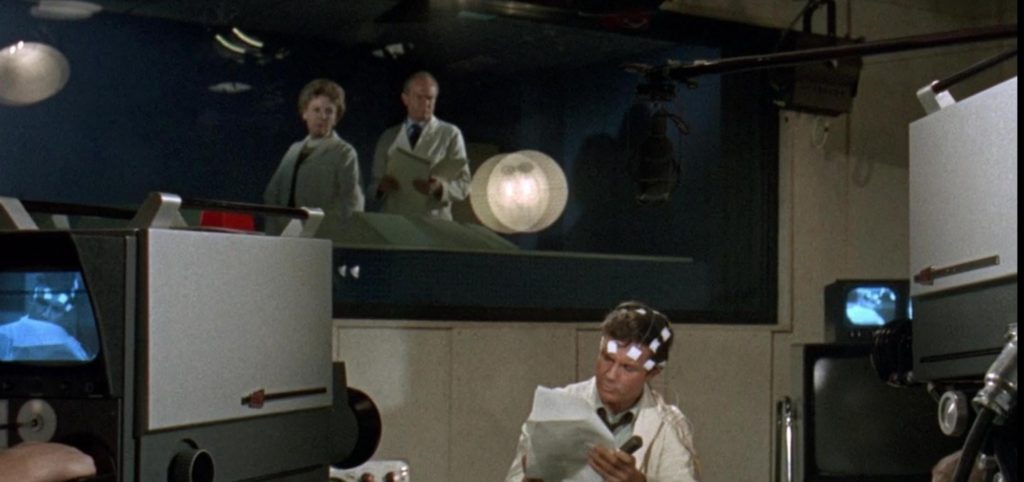
As you might imagine, this sequence is where Robertson's calculated performance shines. Here we see the intelligence at work and feel we are watching a real person as Charly figures out how to live in his new experiences.
And then the movie takes a decided turn for the weird when Charly actually does become smart. At first he seems happy to be able to both lead seminars and be the lead subject them. His newfound genius brings intellectual intelligence but not emotional maturity nor insights into the world around him. Charly learns he may have actually been happier when he was innocent about everything which happened around him.
Charly begins to become paranoid, and his paranoia plays out in a series of increasing surreal sequences in which he imagines himself leading a motorcycle gang, endlessly professing love for his psychologist Alice (well played by Claire Bloom), and some oddly brilliant split-screen effects.
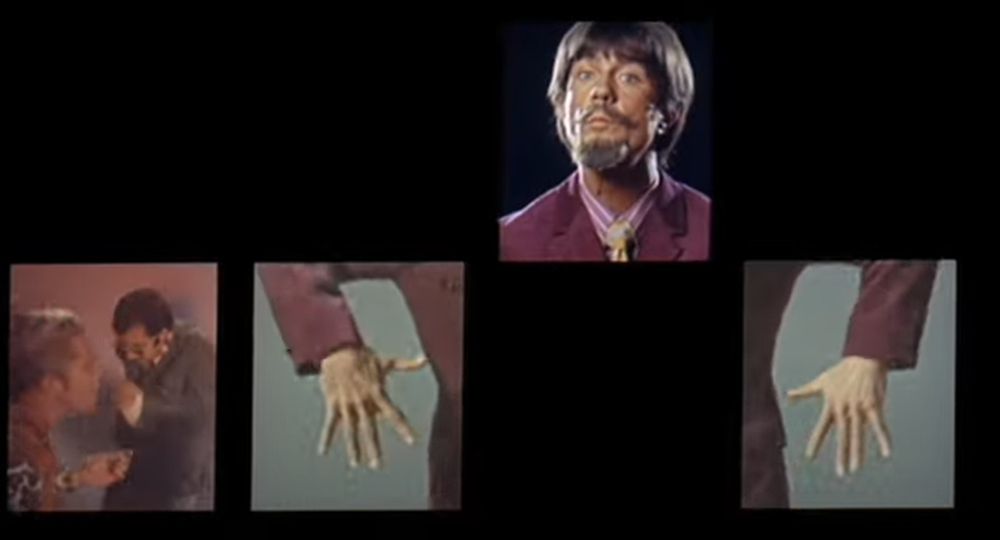
Charly even includes an undercurrent of paranoia in Charly's actions, as if he's being watched as part of a government conspiracy. Of course, he may actually be surveilled but we only see the paranoia from Charly's viewpoint, never from an objective viewpoint which might actually provide context for Charly's actions.
We even get a double-exposure shot in which director Ralph Nelson shows Charly running away from his old self, a very over-the-top bit which unfortunately made me laugh. This surrealism is just a bit too much for the narrative structure Nelson has set up in the first half and the movie threatens at times to teeter and fall under the weight of his ambitions.
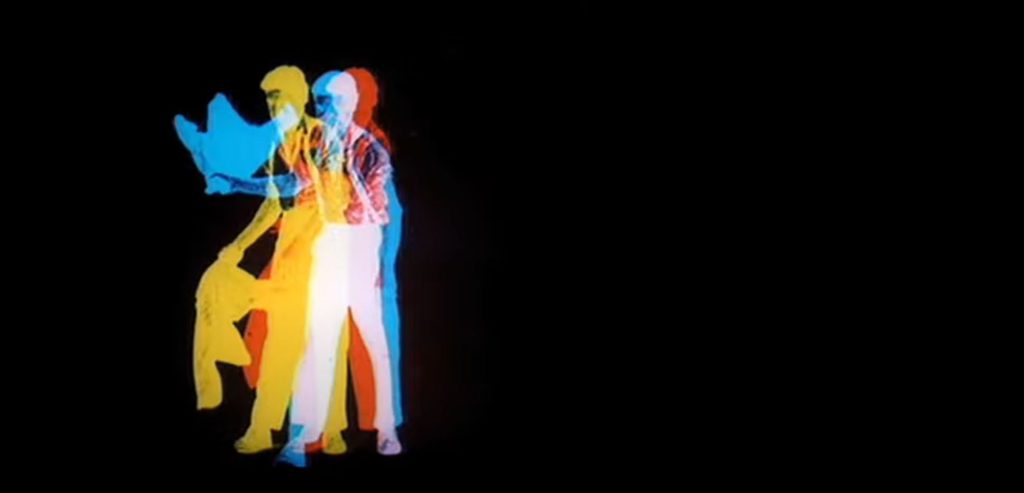
I do have to mention the excellent soundtrack by Ravi Shankar. The music in this film feels both exotic and comfortable, a fascinating mix of west and east which helps to elevate this film, and certainly gives the soundtrack a very contemporary feel.
Charly is a fairly conventional film in its first half and a determinedly surreal film in its second half. Nelson seems up to the task in the first half but pretty much falls on his face in the second. It's somewhat worth watching for Cliff Robertson's interesting performance. I think his performance will be discussed come Oscar season. And though I only kind of liked this movie, it would be fun to see an Oscar won by a lead actor in a science fiction movie.
Three stars.

![[September 28, 1968] Intelligence Ain't All It's Cracked Up to Be: <i>Charly</i>](https://galacticjourney.org/wp-content/uploads/2023/09/charly1-672x372.jpg)


![[January 28, 1966] The Book as Rorschach Test (<i>Flowers for Algernon</i>)](https://galacticjourney.org/wp-content/uploads/2021/01/laboratory-mouse-a55d9736-9685-4f2a-b530-192cdc8ee6a-resize-750-672x372.jpg)


